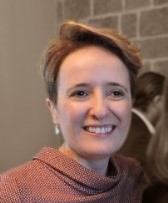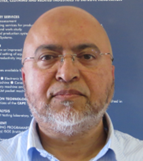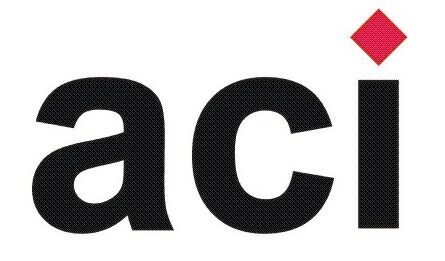Sport Tourism
 Mini Track Chair: Prof Dr Brendon Knott, Cape Peninsula University of Technology, South Africa
Mini Track Chair: Prof Dr Brendon Knott, Cape Peninsula University of Technology, South Africa
Sport tourism is a multi-billion-dollar global business and a fast-growing sector of the global travel and tourism industry. Comprising the largest segment of the sport tourism industry, events and festivals have become an increasingly important component of global tourism economies, and an expanding component of the global leisure market. Given the potential impacts of this sector, there is a growing emphasis on sustainable sport tourism development, as well as advances for the sector through digital innovations and solutions. This track therefore aims to extend this cross-disciplinary niche area with both theoretical and applied research, and to highlight the development of sport tourism in Africa. We welcome topics on a wide range of issues, including but not limited to:
- Sustainable sport tourism development
- Sport tourism events and festivals
- Sport tourism destinations
- Sport tourism technology and digitalization
- Golf, adventure, and extreme sport tourism
- E-sport tourism
- Sport tourism in Africa
Tourist Experience and Emotions in a Digital Society
 Mini Track Chair: Prof. Vera Teixeira Vale, University of Aveiro, Portugal
Mini Track Chair: Prof. Vera Teixeira Vale, University of Aveiro, Portugal
For many the experiences tourists have can be regarded as a major trigger of emotions. As we live in an increasing digital society, with more and more experiences being made digital and using AI, it is worth raising the question whether tourism experiences and emotions still have the same framework or what has changed with the digital society and its impact on tourism.
The Covid-19 pandemic was also an enormous stimulus to develop the digital society and to further promote tourism experiences and emotions that can be perceived digitally and across social media. It can also be perceived as a chance to further develop different kinds of tourism experiences. In this respect, it can be argued that the tourist experience framework and the way in which emotions are triggered and felt, in the context of digital, social media and AI, forced stakeholders adapt to these shifts.
We welcome topics on a wide range of issues, including but not limited to:
- Tourist’s experiences on a digital society
- Experience and Emotions using AI in tourism
- Shifting of the Experience-Emotions framework in tourism
- The impact of social media and sharing on experiences of tourists
- Covid-19 influence on the development of different types of tourist experiences
- Covid-19 influence in the way how tourist felt experiences in tourism
- Negatives of digitalizing the tourist experience
Sustainable Tourism and the Circular Economy
 Mini Track Chair: Dr Christopher J Moon, Middlesex University, UK
Mini Track Chair: Dr Christopher J Moon, Middlesex University, UK
This track will explore the latest developments in the use of circular economy concepts in the tourism industry. Papers reviewing best practices in sustainable tourism or highlighting innovative practices are particularly welcome. This includes the tourism industry, sustainable processes, sustainable transport, sustainable stays (hotels, other establishments, local consumption, waste sorting, etc.), feedback between tourists and providers to improve the sustainable tourism global offer; data on sustainable tourism demands and expectations; innovation and sustainability. Topics of interest include, but are not limited to:
- Circular economy in tourism
- Energy and carbon savings in establishments
- Use of recycled materials
- Eco-friendly sourcing / organic
- Eco-certifications / labelling
- Energy positive
- Zero km
Tourism & Hospitality ICT
 Mini Track Chair: Dr Cândida Silva, PhD, Polytechnic of Porto, Portugal
Mini Track Chair: Dr Cândida Silva, PhD, Polytechnic of Porto, Portugal
Information communication technology (ICT) has been transforming Tourism and Hospitality globally. This track focuses on recent trends in using ICT to develop more agile and sustainable processes in Tourism and Hospitality business, offering an efficient management, supporting decision making and creating value for both customers and suppliers. Moreover, the track will also be an open to analyse subjects related with innovation in teaching and learning process in Tourism and Hospitality courses, and tourist behaviour and its relationship with ICT, namely on using technology to discover, plan and share their travel experiences and how this is changing the tourist industry.
Therefore, contributors are invited to submit original research papers addressing relevant aspects of sustainable and quality development of Tourism and Hospitality ICT. Topics of interest include, but are not limited to:
- ICT to support Sustainable Tourism & Hospitality
- m-Tourism and e-Tourism
- Gamification in Tourism & Hospitality
- Building an online reputation and use of social media
- Digital government for Tourism
- ICT-driven innovation and challenges in Tourism & Hospitality
- ICT-Based Tourism Marketing
- Smart education in Tourism & Hospitality
- Innovation in teaching and learning process in Tourism & Hospitality
Active Life and Well-Being Tourism


Mini Track Chair: Dr Fernanda A. Ferreira, UNIAG, School of Hospitality and Tourism, Polytechnic of Porto, Portugal; Dr Alcina Nunes, UNIAG, Instituto Politécnico de Bragança, Portugal
Now, more than ever, we are aware of the importance of ensuring we are living healthy lives. For many this is gained by spending leisure time in a way which helps to promote well-being and healthy people in healthy places. In this way there is a growing industry of touristic locations and events which bring people to experience aspects of a healthy lifestyle.
This mini track aims to bring together leading academics, researchers, and scholars to exchange and share their experiences and research results on all aspects of Active life strategies linked to nature tourism, cultural tourism, sports tourism, well-being tourism and quality of life, among others. Topics of interest include, but are not limited to:
- Health and Well-being
- Thermalism
- Nature tourism
- Slow tourism
- Rural tourism
- Ecotourism
- Endogenous resources
Tourism, SMEs and Collaborative Marketing
 Mini Track Chair: Prof. Teresa Costa, Polytechnic Institute of Setubal, Portugal
Mini Track Chair: Prof. Teresa Costa, Polytechnic Institute of Setubal, Portugal
Now, more than ever, Tourism SMEs (TSMEs) are being regarded as relevant for job creation, economic stimulus, and sustainable development (Hallak et al., 2015) and the competitiveness of destinations (Peters et al., 2019). However, TSMEs must be prepared for a much more high-tech/digital world, a process that has been accelerated during confinement and that has taken root even more in people's daily routines. One the other hand, how the pandemic will continue to affect tourists' behaviour is still unknown. Tourists may become more demanding when travelling, more restrictive on budget, less concerned or less eager to socialize. Adjusting to this "new tourist" is an added challenge for tourism service providers. Moreover, the pressure from society and governments towards more sustainable tourism provides additional challenges for TSMEs.
In this context, traditional modus operandi might be inadequate, there is a need to rethink/re-create the tourism marketing. In an increasingly interconnected world, with uncertainty concerning new tourist behaviours, and pressure to move towards a circular economy, coopetition between TMSEs might be the way to respond (collaboratively) to the challenges ahead, using technological advances in their favour, gaining scale, more efficient use of resources, and rapid adaption of the tourism product to the new demand in balance with sustainable concerns. We welcome topics on a wide range of issues, including but not limited to:
- New tourist behaviours
- Circular economy in tourism
- Coopetition between tourism SMSEs
- Collaborative economy and sustainable tourism
- Interactive digital marketing and promotion of the regions
- Collaborative venture driven by technological change on tourism
- Challenges and successes in collaborative tourism governance
- Growing demand for authentic co-created experiences in tourism
Event Tourism
 Mini Track Chair: Tracy Daniels, (PhD Candidate), School of Tourism and Hospitality, University of Johannesburg, South Africa
Mini Track Chair: Tracy Daniels, (PhD Candidate), School of Tourism and Hospitality, University of Johannesburg, South Africa
Event tourism, also known as event based tourism, is vigorously growing, stimulating both domestic and international tourism across the globe. This type of tourism is widely considered an important part of the global tourism industry due to its range of benefits including positive economic impacts, destination promotion, cultural exchange, community development, the balance of tourism seasonality, increased social interaction, the diversification of tourism offerings and destination brand building amongst others. The increasing popularity of the hosting of a range of events including cultural festivals, business events, music and arts events, wildlife and nature events, sport events, business and trade conferences, and religious and traditional ceremonies has highlighted the need for an increased focus on sustainable and responsible event tourism practices. This mini track on event tourism aims to bring to light the latest developments and trends in research on event tourism both in Africa and internationally.
Topics welcomed for inclusion in the mini track include and are not limited to:
- MICE events
- Event greening
- ICT and the hosting of events
- Event tourism policy and governance
- Event tourism and human rights
- Sustainable event tourism
Entrepreneurship and Tourism


Mini Track Chair: Dr Sweta Patnaik & Mr Shamil Isaacs, Cape Peninsula University of Technology, South Africa
Countries and regions where tourism plays a key role in the economy there is an opportunity for entrepreneurs to enter the industry. This can be seen in a wide range of innovative SMMEs in the traditional tourism sector such as boutique hotels, homestays, private tours of local areas and unusual transportation options. And also in industry not necessarily thought of as touristic, the chairs of this track for example have a specific interest in the fashion industry.
South Africa, has seen a notable upswing in fashion tourism and entrepreneurship. This growth is fuelled by a deep fascination with the nation's unique fashion culture and a thriving entrepreneurial spirit within the industry, including SMMEs. South Africa's fashion landscape draws inspiration from its rich cultural heritage, featuring numerous fashion events like South African Fashion Week and Durban Fashion Fair, attracting diverse audiences. These factors contribute to expanding the reach of local fashion entrepreneurs, enhancing economic sustainability, and elevating South Africa as a premier fashion destination while inspiring innovation and creativity.
- Tourism Incubators and accelerators
- The less traditional tourism industry
- Supporting Small Producers
- Innovative accommodation
- Innovative gastronomy
- Sustainable /responsible tourism
- Fashion tourism in South Africa
- Tourism Design
- SMMEs in the tourism value chain
- Best practice in tourism and culture synergies

